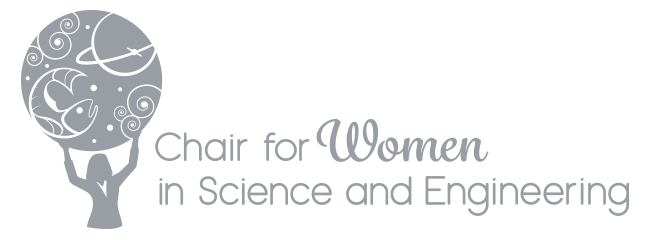It is often surprising how naturally mentorship can develop between yourself and a colleague, particularly when you share similar interests and goals.
Levannia Lildhar grew up in Whitby, Ontario and is currently in the final semester of her degree in Chemical Engineering and Biochemistry at the University of Ottawa. Throughout her university career she has had the opportunity to work in several research laboratories as well as private sector companies in the Ottawa area. Her most memorable experiences include working at Epocal Inc., where she was exposed to the research involved in biosensor design as well as the laboratory of Dr. Isabelle Catelas, where she researched the effects of hip implants on the body. For the past four years Levannia has also been very involved with the University of Ottawa Women in Science and Engineering (WISE) club and has helped to plan events such as the Inspiring Women Speaker Series at the University. Presently, Levannia is completing her engineering thesis in the Department of Chemical and Biological Engineering, where she is studying dystrophic calcification in the human body and its potential causes.
Tell us a little bit about yourself, what is your current job?
I am currently a student at the University of Ottawa in the final semester of my studies. I am currently enrolled in a dual degree program that educates students in the fields of both Biochemistry as well as Chemical Engineering. This program has given me a wide range of experiences. Over the last six years during my CO-OP terms I have had many experiences in both academic and industrial settings. Most recently, I worked at Epocal Inc. and was exposed to the research and development required to manufacture biosensors. I am also currently completing my engineering thesis in the Department of Chemical and Biological Engineering, where I am studying dystrophic calcification.
What made you want to pursue a career in engineering?
I’m not sure if I have an answer. Growing up I didn’t really envision myself as an engineer. I’m not sure that I even knew what being an engineer meant. However, when it came to choosing my program of study at university, I knew I loved science and mathematics, but more than that I loved the application of what I learned in those subjects. So naturally, it seemed like engineering, or applied sciences was the right fit for me. Today, I am excited to learn about biochemical reactions and pathways in my science courses, but I have been even more enthusiastic to learn their applications, and how these reactions affect us every day.
What’s your favourite part of your job?
My favourite part of studying Biochemistry and Chemical Engineering has been developing my problem solving skills, whether it is in the lab, developing a new protocol for my future experiments, or solving an intricate problem on an assignment in class. Through developing my problem solving skills I have been lucky enough to learn something new every day and I am excited to see what opportunities are available after graduation.
How do you celebrate National Engineering Month?
As a student I like to participate in the NEM events held on campus, particularly listening to the speakers. It’s always interesting to hear the perspective of others in the fields of science and engineering and learn about their experiences.
What advice do you have for young women who hope to pursue a career in your field?
Don’t be afraid to ask. Your career development is your responsibility, and it’s important that you ask for the things that you want, whether it is to gain more experience in a particular area of your work, or be assigned more responsibility as a CO-OP student. Your manager or supervisor will not know how you wish to grow without you telling them. Remember the worst thing they can do say is no. But you won’t know their response until you ask.
How would you describe the relationship with your mentor/mentee?
I don’t believe that there is a set formula for mentorship. Mentorship comes in many shapes and sizes. Throughout my university career, I have been very lucky to be mentored informally as well as formally, and I believe that the best mentorship I have received has been informally. It is often surprising how naturally mentorship can develop between yourself and a colleague, particularly when you share similar interests and goals. If you are looking for a mentor, I would recommend choosing someone with whom you are comfortable. I would also say to never be afraid to ask for mentorship from an individual. In my experience most people are flattered and more than willing to help.

